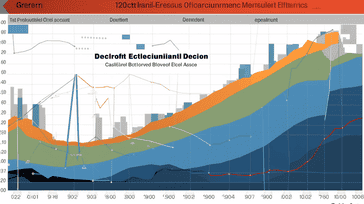
Insurance is an essential component of financial planning, and auto insurance is no exception. Whether you're a seasoned driver or a beginner, having the right insurance coverage can provide peace of mind and protect you from unexpected financial losses.
In this section, we will explore auto insurance basics, including insurance coverage, policy terms, and everything else you need to know to stay adequately protected.
Key Takeaways
- Understanding the different types of auto insurance coverage can help you choose the right policy for your needs.
- Familiarizing yourself with insurance policy terms can help you avoid confusion and make informed decisions.
- Auto insurance is essential for protecting yourself, your passengers, and other drivers on the road.
- Regularly reviewing and updating your insurance policy can help ensure you remain adequately protected.
- Factors like your driving record, vehicle type, age, and location can impact your insurance premiums.
Understanding the Different Types of Insurance Coverage
When it comes to auto insurance, there are different types of coverage available that you should be aware of to ensure that you are adequately protected. The three main types of auto insurance coverage include liability coverage, collision coverage, and comprehensive coverage.
Liability Coverage
Liability coverage is the most basic type of auto insurance and is mandatory in most states. This coverage pays for damages and injuries you cause to others in an accident. Liability coverage is further divided into two categories:
| Bodily injury liability | Property damage liability |
|---|---|
| Covers medical expenses, lost wages, pain and suffering, and other damages resulting from bodily injury | Pays for damage to someone else's property, such as their car, fence, or mailbox |
It is essential to have enough liability coverage to protect your assets in case you are sued for damages that exceed the limits of your policy.
Collision Coverage
Collision coverage pays for damage to your car resulting from a collision with another car or an object, regardless of who is at fault. Collision coverage is optional but may be required if you lease or finance your car.
Comprehensive Coverage
Comprehensive coverage pays for damages to your car caused by events other than a collision, such as theft, vandalism, fire, or natural disasters. Like collision coverage, comprehensive coverage is optional but may be required by your lender or lessor.
It's important to note that auto insurance policies have limits and exclusions. For example, liability coverage has limits that can vary depending on the policy you choose, and comprehensive coverage may not pay for damage caused by flooding or earthquakes. It is crucial to read your policy carefully and ask your insurance provider any questions you may have.
Now that you understand the different types of auto insurance coverage available, you can make an informed decision about the coverage that best suits your needs. Remember that having sufficient insurance coverage can give you peace of mind and protect you from financial hardship in case of an accident.
Choosing the Right Insurance Provider for You

Shopping for auto insurance can be overwhelming. With so many options available, it's crucial to choose the right insurance provider that meets your specific needs. Here are some factors to consider when selecting an insurance provider:
Reliability and Financial Stability
One of the essential factors to consider when choosing an insurance provider is reliability. You want to make sure that the provider has a good reputation in terms of handling claims promptly and efficiently. You can research a provider's financial stability and reputation by checking ratings from independent rating agencies.
Competitive Rates
Price is another essential factor to consider when choosing an insurance provider. When comparing rates across different providers, make sure you're comparing similar types of coverage. Some providers may offer lower rates, but they may also provide less coverage than others.
Customer Service
Customer service is a crucial aspect to consider when selecting an insurance provider. You want a provider that is responsive, helpful, and provides clear explanations of their policies. Look for providers with positive reviews from their customers and who offer accessible channels for customer support.
Discounts and Benefits
Many insurance providers offer discounts and benefits to their customers. These can include safe driver discounts, multi-policy discounts, and discounts for good grades. Be sure to ask your provider about any discounts or benefits you may be eligible for, as they can help you save money on your premiums.
Conclusion
Choosing the right insurance provider is a critical step in ensuring you're adequately protected on the road. Consider the factors mentioned above and research providers thoroughly to make an informed decision. With the right provider, you can have peace of mind knowing that your auto insurance needs are covered.
Factors Affecting Auto Insurance Premiums
Auto insurance premiums are not fixed and depend on various factors. The premium is the amount you pay to the insurance company for coverage, and it can vary based on several factors. Here are some of the significant factors that can impact your auto insurance premium:
Driving Record
Your driving record has a significant impact on your auto insurance premium. If you have a history of tickets, accidents, or other violations, you may be considered a high-risk driver, and your premium will be higher.
Vehicle Type
The type of vehicle you own can also impact your auto insurance premium. Luxury cars, sports cars, and high-performance vehicles usually have higher premiums because they are more expensive to repair or replace.
Age and Gender
Young drivers, especially teenagers, are more likely to be in accidents than older, experienced drivers. As a result, younger drivers pay more for auto insurance coverage. Gender is also a factor, as statistics show that young male drivers are more likely to be in accidents than young female drivers.
Location
Your location can also impact your auto insurance premium. If you live in an area with a high rate of accidents, thefts, or vandalism, your premium will be higher.
Credit Score
Although not every state allows insurance companies to use credit scores to determine auto insurance premiums, some do. Insurance companies use credit scores to predict the likelihood of a policyholder filing a claim. If you have a low credit score, you may be considered a high-risk driver, and your premium will be higher.
Ways to Reduce Your Premiums
While you can't control your age, gender, or location, there are some things you can do to potentially reduce your auto insurance premiums. Maintaining a clean driving record, driving a less expensive car, and choosing a higher deductible can all help reduce your premium. Furthermore, taking a defensive driving course or bundling multiple insurance policies with the same provider can also help you save money on premiums.
Understanding Auto Insurance Policy Terms

When you purchase an auto insurance policy, it's essential to understand the terms and jargon used to ensure you're adequately protected. Here are some crucial terms to familiarize yourself with:
- Policy limit: The maximum amount your insurer will pay for covered claims.
- Deductible: The amount you pay out of pocket before your insurer covers the rest of the claim.
- Exclusions: Events or situations that your policy does not cover.
- Premium: The amount you pay for your policy.
- Claim: A request made to an insurer to cover a loss or damage.
- Underwriting: The process insurers use to determine your risk level and eligibility for coverage.
It's also important to know the specific terms and conditions of your policy. For example, your policy may have restrictions on where and when you can drive your car or specific coverage limits for certain types of claims.
Reading Your Auto Insurance Policy
When you receive your auto insurance policy, it's crucial to read it thoroughly and understand the coverage and terms specific to your policy. Here are a few tips to help you:
- Review your coverage limits and deductibles. Understand how much coverage you have and how much you'll be responsible for paying out of pocket.
- Look for exclusions and restrictions. Make sure you are aware of any types of damage or incidents that are not covered by your policy and any restrictions on your coverage.
- Understand your policy's claims process. Know who to contact and what steps you need to take in the event of an accident or other covered claim.
- Review your policy annually. Make sure your coverage still meets your needs and consider making changes if necessary.
Working with Your Insurance Agent
Don't be afraid to ask your insurance agent questions about your policy. They are there to help you understand your coverage and make informed decisions. Here are some questions you might want to ask:
- What types of claims are covered under my policy?
- What is my policy limit?
- What is my deductible?
- Are there any exclusions or restrictions to my coverage?
- What discounts do I qualify for?
- How do I file a claim?
By understanding the terms and conditions of your auto insurance policy, you can make sure you're adequately protected and prepared in the event of an accident or other covered claim.
Home Insurance and Its Importance
Home insurance, also known as property insurance, is an essential type of insurance coverage that protects your home and personal property from unforeseen circumstances. It covers damages caused by events like theft, fire, and natural disasters, providing a sense of security and peace of mind for you and your family.
There are various types of home insurance policies available to meet your specific needs. Standard policies typically cover damages to the structure of your home, personal property, and liability for injuries or damages caused to others on your property.
Some insurance providers offer additional coverage options, such as:
- Extended Replacement Value Coverage: Covers the replacement costs of your home, even if it exceeds the policy's limits.
- Flood Insurance: Protects your home and personal property from damages caused by floods, which are not covered under standard policies.
- Earthquake Insurance: Covers damages to your home caused by earthquakes, which are not typically covered under standard policies.
Before selecting a home insurance policy, it's essential to assess your coverage needs and compare different insurance providers. Consider the cost, coverage options, deductibles, and customer service quality to make an informed decision.
Did You Know? According to a study, only 41% of homeowners in the US have a home inventory, which is essential for accurately assessing the value of personal property in the event of a claim. A detailed inventory can help ensure you receive the appropriate compensation for lost or damaged items.
Key Takeaways
- Home insurance, also known as property insurance, covers damages to your home and personal property caused by unforeseen events like theft, fire, and natural disasters.
- There are various types of home insurance policies available, including standard policies and additional coverage options like extended replacement value coverage, flood insurance, and earthquake insurance.
- When selecting a home insurance policy, assess your coverage needs, compare different insurance providers, and consider factors like cost, coverage options, deductibles, and customer service quality.
- A home inventory is crucial for accurately assessing the value of personal property in the event of a claim.
Health Insurance: Your Key to Peace of Mind

Health insurance is an essential part of safeguarding your well-being. When you have health insurance, you can have peace of mind knowing that you have coverage for unexpected medical expenses.
There are different types of health insurance plans available, including:
- Health Maintenance Organizations (HMOs)
- Preferred Provider Organizations (PPOs)
- Exclusive Provider Organizations (EPOs)
- Point of Service (POS) plans
Note: Make sure to choose a plan that aligns with your healthcare needs and budget.
When choosing a health insurance plan, it is also crucial to consider the following factors:
- Monthly premiums
- Deductibles
- Coinsurance
- Copays
Note: It's important to understand these terms and how they impact your out-of-pocket expenses.
Did You Know? The Affordable Care Act (ACA) requires most Americans to have health insurance coverage or face a penalty.
Regardless of your age or current health status, having health insurance is critical. It not only protects you from unforeseeable medical expenses but also promotes preventive care and early detection of any health issues.
The Role of Life Insurance in Financial Planning
Life insurance is an essential tool in securing the financial future of your loved ones. It provides financial protection to your family members in the event of your untimely demise.
There are various types of life insurance policies available to cater to your specific needs. Term life insurance is the most affordable option and provides coverage for a predetermined period, usually between five and thirty years. Whole life insurance, on the other hand, provides lifelong coverage and includes a cash value component that grows over time.
When determining the amount of life insurance coverage you need, consider factors such as your annual income, outstanding debts, and your family's living expenses. A general rule of thumb is to have coverage that is at least ten times your annual income.
Term Life Insurance vs. Whole Life Insurance
| Type of Insurance | Pros | Cons |
|---|---|---|
| Term Life Insurance |
|
|
| Whole Life Insurance |
|
|
It's essential to review and update your life insurance policy regularly to ensure it aligns with any changes in your circumstances, such as a new job, marriage, or the birth of a child.
Remember, life insurance serves as a financial safety net for your loved ones in your absence. Choose the policy that best fits your needs and budget.
Conclusion
As we conclude this article, it's clear that insurance is a crucial part of our lives. While it may seem like an added expense, having insurance can provide peace of mind when the unexpected occurs.
The Importance of Regular Reviews
It's essential to keep in mind that your insurance needs may change over time, which is why it's essential to review your coverage regularly. As your circumstances evolve, your insurance requirements may change, and it's important to ensure you have the appropriate coverage in place.
The Value of Knowledge
One of the most important things you can do as a consumer is educating yourself about the different types of insurance coverage available. Knowing what is covered and what isn't in your insurance policy can help you make informed decisions.
Your Protection is in Your Hands
Your insurance protection is ultimately in your hands, so it's crucial to take your time, research your options carefully, and choose an insurance provider that meets your needs. Remember, insurance isn't a one-size-fits-all product, and it's essential to select coverage that aligns with your lifestyle, circumstances, and budget.
By following the advice we've discussed in this article, you can make informed decisions about your insurance coverage and ensure you are adequately protected. Don't wait until the unexpected happens. Start taking steps today to secure your financial future and protect your loved ones.
FAQ
Do I need auto insurance?
Yes, auto insurance is mandatory in most states. It is important to have auto insurance to protect yourself financially in case of an accident.
What types of auto insurance coverage are available?
There are several types of auto insurance coverage, including liability coverage, collision coverage, and comprehensive coverage. Each type provides different levels of protection.
How do I choose the right insurance provider?
When selecting an insurance provider, consider factors such as reliability, competitive rates, and customer service. It is also important to ensure the provider is financially stable.
What factors affect auto insurance premiums?
Auto insurance premiums are influenced by factors such as your driving record, vehicle type, age, and location. Taking steps to improve your driving record and choosing a safer vehicle can potentially help reduce your premiums.
What are common terms used in auto insurance policies?
Some common terms used in auto insurance policies include deductible, limits, and exclusions. Understanding these terms can help you better comprehend your policy and coverage.
Why is home insurance important?
Home insurance protects your property from unexpected events like fire, theft, or natural disasters. It provides financial security and helps in rebuilding or repairing your home.
How do I choose the right health insurance plan?
When selecting a health insurance plan, consider your healthcare needs, budget, and preferred network of doctors. Compare different plans and their coverage to make an informed decision.
What is the role of life insurance in financial planning?
Life insurance provides financial protection for your loved ones in case of your untimely death. It can help cover expenses, provide income replacement, and ensure your family's financial security.







